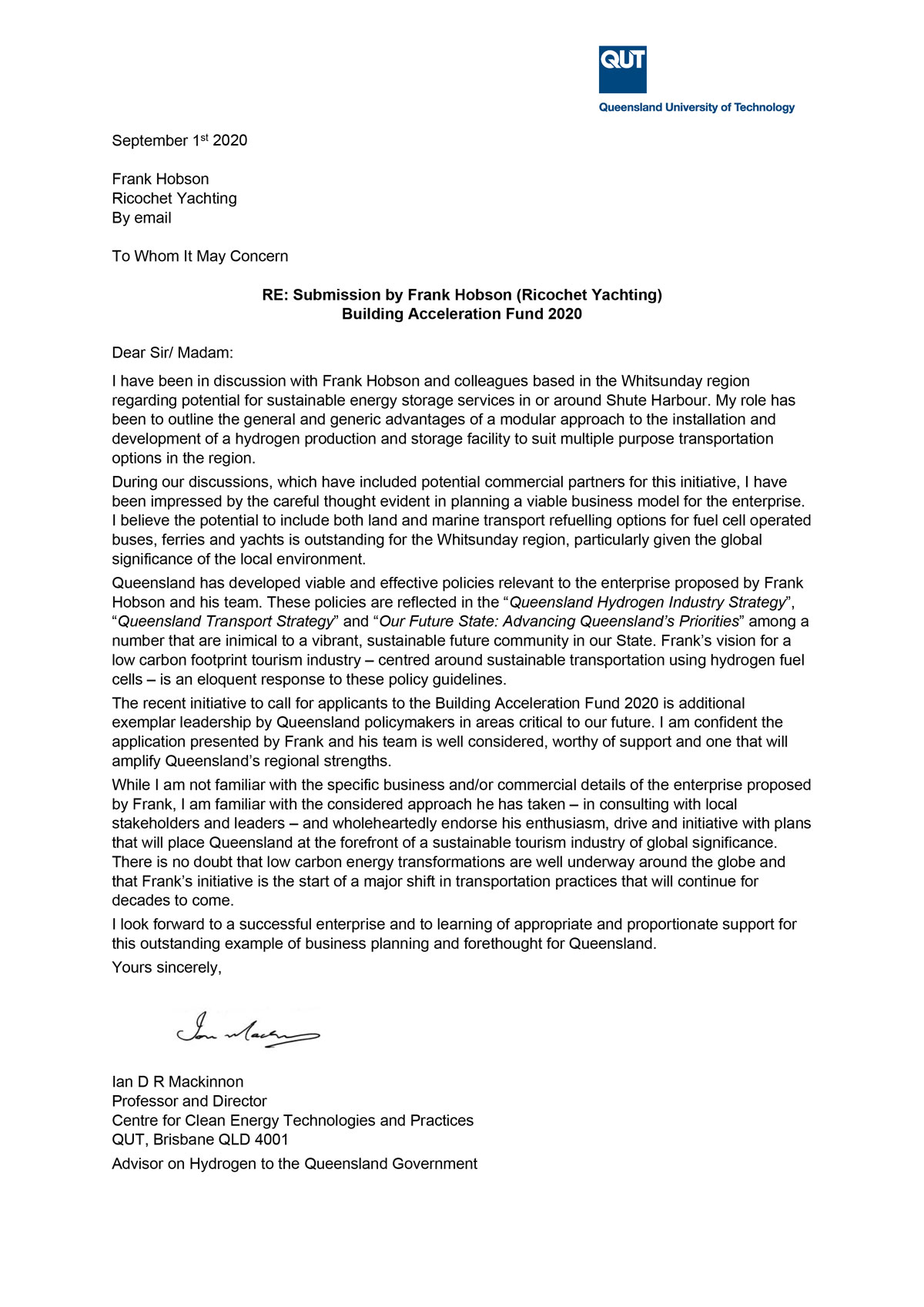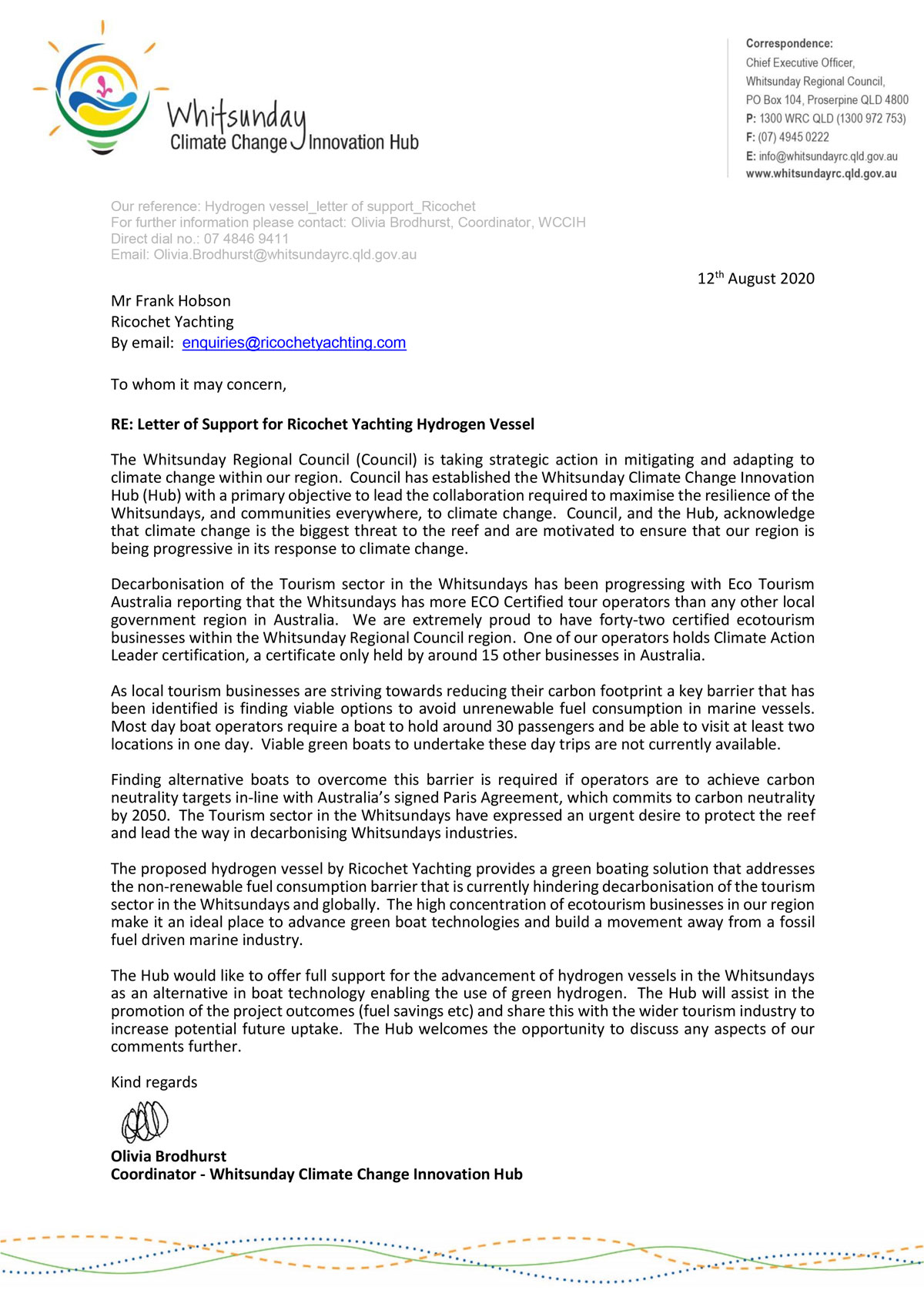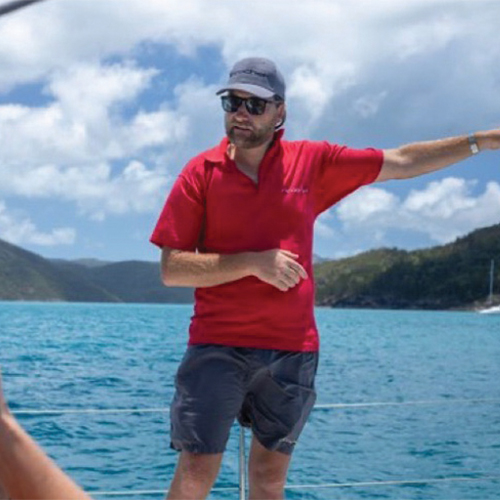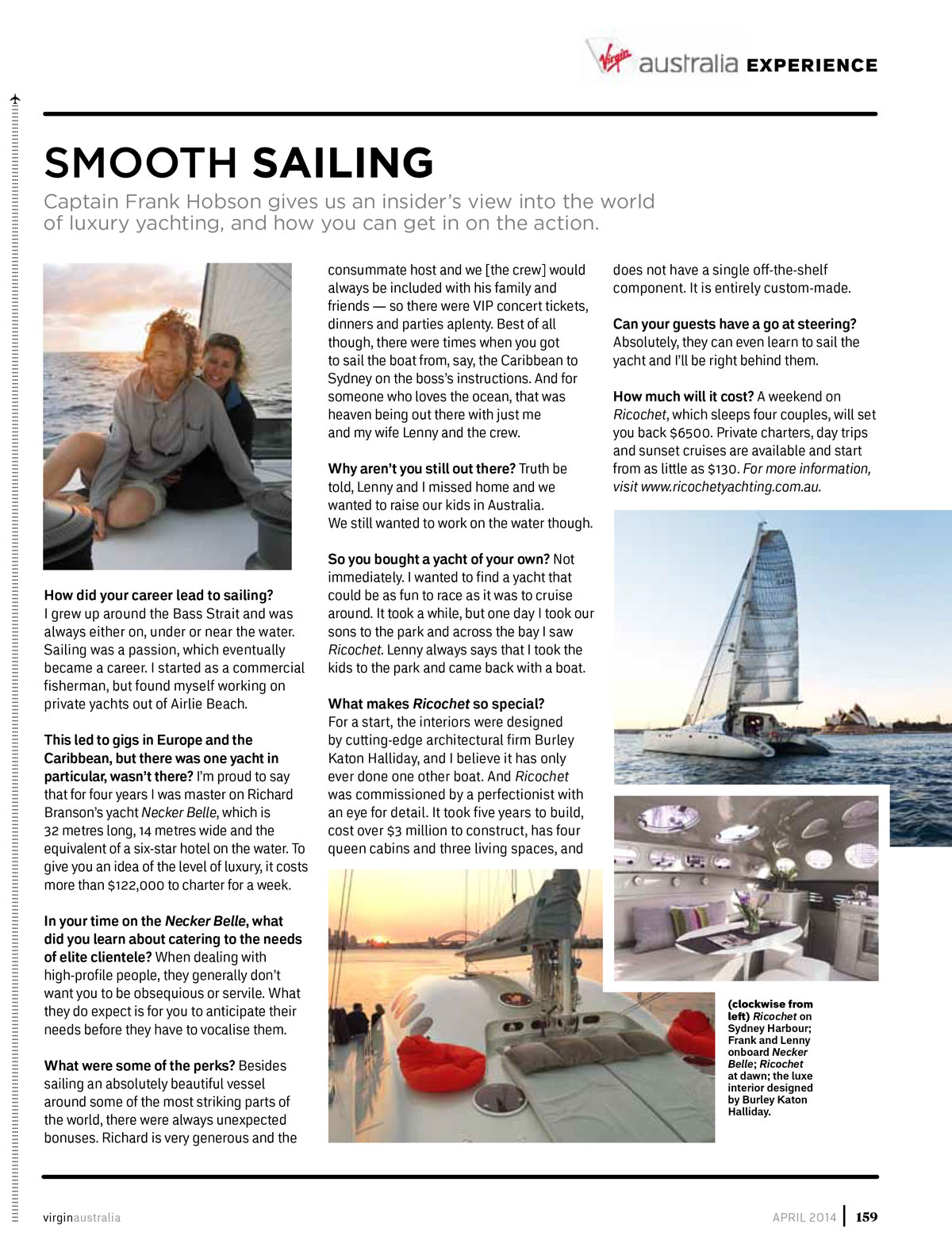About
Project Details
The H2Rendezvous Project is a world first, Great Barrier Reef tourism vessel that is stylish and luxurious in every detail and powered by 100% clean, green renewable energy produced locally.
You step aboard, find your sunbed and relax. The dock lines are dropped and the vessel leaves its berth, in total silence. No rumble of combustion engines, no sign or smell of smoke just the sound of the sleek hulls cutting through the water. This tour will be a completely unique experience and one that will be remembered for a lifetime.
Rendezvous will be the first vessel of its kind, and the future of marine tourism. Queensland has the opportunity to be host to the first Hydrogen-powered zero emission renewable energy tourism vessel.
The installation of the first Hydrogen, storage and delivery facility in the Townsville region in conjunction with the construction of the first Hydrogen powered commercial marine tourism vessel will be a critical step in Queensland’s transition to renewable energy transport infrastructure.
There are two separate components to the H2Rendezvous project:
- The supply of green Hydrogen from local production, storage and delivery facilities. The first phase will have a 1000kgs capacity to refuel the daily operation of our hydrogen-powered vessel.
- The construction of a purpose-built Hydrogen powered commercial tourism vessel. The cost of the construction of this vessel and the re-fueler to service the vessel requires funding from QLD Hydrogen Industry Development fund.
- The custom vessel (Rendezvous) will be powered by hydrogen fuel cells. The vessel will cater to up to 60 guests and offer a high-speed inter Whitsunday Islands transfer service and marine tourism operation including snorkelling to the outer Great Barrier Reef
- Rendezvous will travel at speeds in excess of 24 knots and has been designed to deliver a smooth ride to minimise discomfort to passengers even in open water.
The H2Rendezvous Project will:
- Establish several Hydrogen supply agreements with local QLD green hydrogen supply networks from Mackay to Townsville
- Successfully construct a 34m commercial survey passenger vessel on time and on budget in QLD
- Secure reliable supply of Hydrogen from multiple Hydrogen production plants in the region to the vessel and future marine and road users
- Create and sustain a new workforce, specialising in the construction, operation and maintenance of a hydrogen fuel cell powered commercial tourism vessel
- Reduce the amount of Co2 emissions from a commercial marine tourism vessel by over 650 tonnes per year
- Demonstrate the successful application of the use of Hydrogen in the marine transport industry to encourage further use of hydrogen as a viable zero emission fuel
- Be the catalyst for new The Future Fuels Marine Regulation allowing the transition of Australian commercial vessels to a zero emissions future
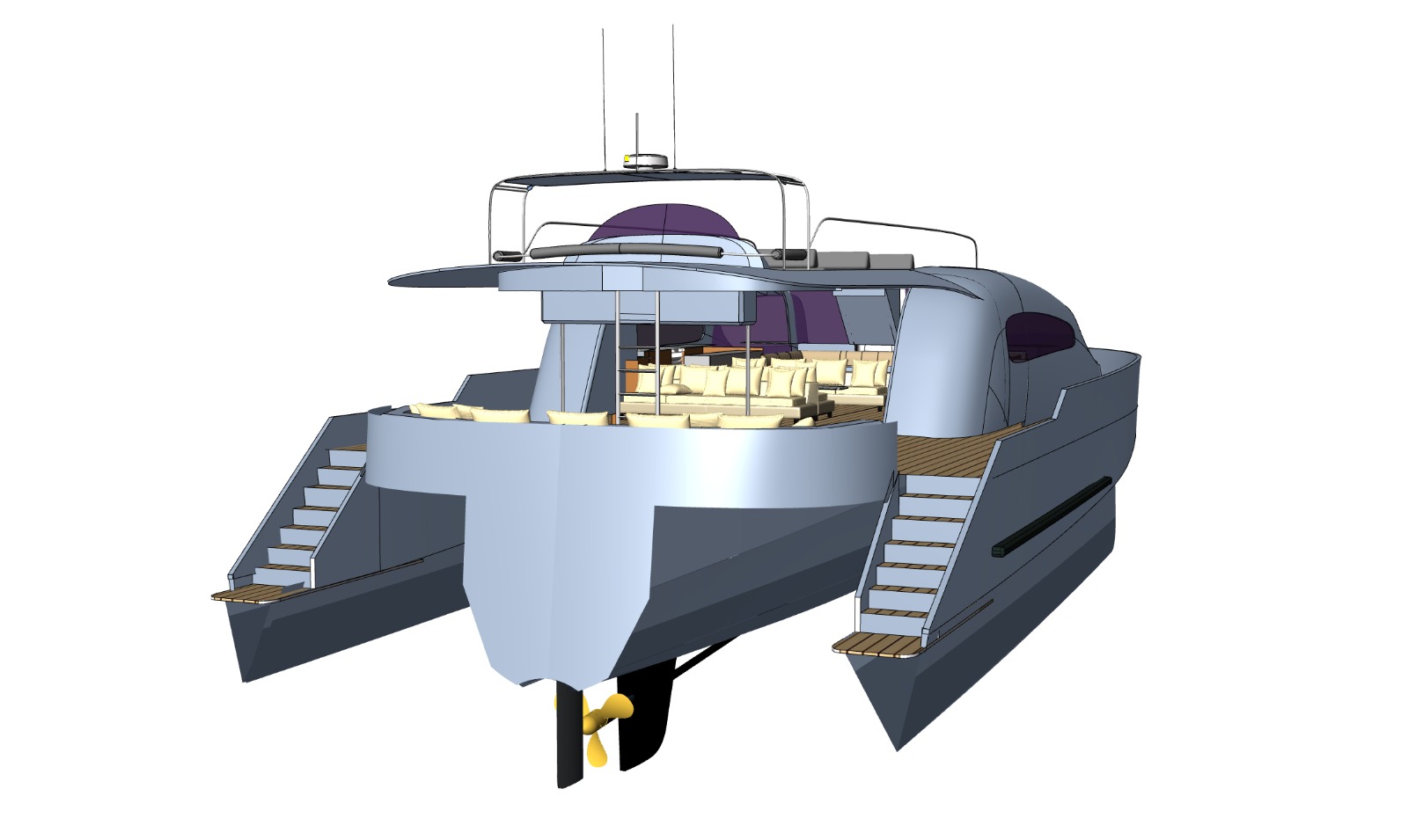
Merit Details
Project Need
Our application demonstrates the need for the infrastructure through market analysis, industry testimonials and other relevant information.
There is a strategic opportunity for a new hydrogen industry to advance Queensland’s priority for creating jobs in a strong economy. As the world responds to climate change we need to draw on our natural advantages to meet growing international demand for cleaner energy.
Recent technological advances in the production, storage and transport of hydrogen have renewed global interest in its potential as a renewable energy carrier.
— Dr. Ian Mackinnon, Queensland Government’s strategic hydrogen advisor and Professor at the Queensland University of Technology.
I agree with you that the opportunity to propose use of a refuelling capacity that encompasses hydrogen production at the Shute Harbour Marine Terminal development is an exemplar for Australia.
The capacity to cater for “next generation” transportation using low CO2 or renewable energy-based hydrogen production and storage for operation of fuel cell buses and marine craft will be innovative, environmentally sustainable and consistent with the premier tourism region of Queensland.
— Dr. Ian Mackinnon, Queensland Government’s strategic hydrogen advisor and Professor at the Queensland University of Technology.
An on-site refuelling facility provides a crucial step in the transformation of Queensland’s energy industry to a sustainable energy sector that will complement our existing and leading strengths in renewable energy production and integration with our national energy network. Addition of readily available alternative, emissions free transport options will inevitably follow – particularly those forms that can operate “back-to-base” options – with the installation of a hydrogen refuelling capacity at Shute Harbour.
— Dr. Ian Mackinnon, Queensland Government’s strategic hydrogen advisor and Professor at the Queensland University of Technology.
Harnessing energy from the universe’s most abundant element is not a new concept, but we can do much more to produce and use hydrogen in a way that maximises its potential to transport and use carbon-free energy across multiple sectors.
With the rapid growth in renewable electricity and falling costs of wind and solar power, the opportunity to produce low or zero carbon-emitting forms of hydrogen has captured the imagination of industry, consumers and policymakers seeking further opportunities to decarbonise our society. For climate-conscious consumers seeking alternatives to hydrocarbon fuels in the transport sector, hydrogen has certain competitive advantages over batteries and electrification, although hydrogen and battery fuel cells should be viewed as complementary as each finds its niche in a zero carbon economy.
Developing low-carbon transport alternatives, greening the industry and providing incentives to those businesses who respond to climate change effectively are major opportunities. Preparing for changes in markets, developing new and diversified visitor experiences and supporting new products were also seen as beneficial, and align well with existing industry strategies and initiatives.
The Queensland Climate Change Response was released in July 2017. This policy response includes two complementary strategies—the Queensland Climate Transition Strategy(QCTS) and the Queensland Climate Adaptation Strategy(Q-CAS).
The QCTS sets a vision of a zero net emissions future for Queensland that supports jobs, industries, communities and the environment. It includes three key climate change commitments:
- Powering Queensland with 50% renewable energy by 2030
- Reducing emissions by at least 30% below 2005 levels by 2030
- Achieving zero net emissions by 2050.
Tourism is a major contributor to carbon emissions, and —due to its continuous growth path —will become increasingly prominent in Australia’s efforts to respond to climate change. Recognising the ‘critical decade’ (implying a very short time window to act), the Queensland Government signed up to The Subnational Global Climate Leadership Memorandum of Understanding. The MOU stipulates that signatories will contribute to limiting warming to below 2°C, reducing GHG emissions to 80–95% below 1990 levels (or to less than 2 annual metric tonnes of CO2 per capita) by 2050.
Australia’s and Queensland’s commitments require a steep decarbonisation path, and the Queensland tourism industry will have to manage both risks and opportunities that stem from this relatively rapid transition. New investment, for example, will need to be directed towards low-carbon technologies and building designs, and increasing use of renewable energy, while tourism planning and management will have to consider the costs of carbon. Clearly, climate change presents some opportunities for tourism.
“Queensland is well positioned to meet the growing international demand for hydrogen as well as supplying the domestic market. Strong and long-standing trading partners like Japan and South Korea have expressed interest in the potential for hydrogen production in Queensland. Our established infrastructure, close proximity to Asia, significant solar resources, and available land make Queensland well-placed to produce renewable hydrogen for domestic and international use.”
“Advancing Queensland’s hydrogen industry”, September 2018, Qld Government.
- The international Energy Agency and others have identified the development of hydrogen hubs as a cost-effective route to achieving scale, so that hydrogen can be globally competitive. Australian governments support the hub model as a prospective early stage approach.
The Whitsunday Regional Council (Council) is taking strategic action in mitigating and adapting to climate change within our region. Council has established the Whitsunday Climate Change Innovation Hub (Hub) with a primary objective to lead the collaboration required to maximise the resilience of the Whitsundays, and communities everywhere, to climate change. Council, and the Hub, acknowledge that climate change is the biggest threat to the reef and are motivated to ensure that our region is being progressive in its response to climate change.
Decarbonisation of the Tourism sector in the Whitsundays has been progressing with Eco Tourism Australia reporting that the Whitsundays has more ECO Certified tour operators than any other local government region in Australia. We are extremely proud to have forty-two certified ecotourism businesses within the Whitsunday Regional Council region. One of our operators holds Climate Action Leader certification, a certificate only held by around 15 other businesses in Australia.
As local tourism businesses are striving towards reducing their carbon footprint a key barrier that has been identified is finding viable options to avoid unrenewable fuel consumption in marine vessels. Most day boat operators require a boat to hold around 30 passengers and be able to visit at least two locations in one day. Viable green boats to undertake these day trips are not currently available.
Finding alternative boats to overcome this barrier is required if operators are to achieve carbon neutrality targets in- line with Australia signed Paris Agreement, which commits to carbon neutrality by 2050. The Tourism sector in the Whitsundays have expressed an urgent desire to protect the reef and lead the way in decarbonising Whitsundays industries.
The proposed hydrogen vessel by Ricochet Yachting provides a green boating solution that addresses the non-renewable fuel consumption barrier that is currently hindering decarbonisation of the tourism sector in the Whitsundays and globally. The high concentration of ecotourism businesses in our region make it an ideal place to advance green boat technologies and build a movement away from a fossil fuel driven marine industry.
The Hub would like to offer full support for the advancement of hydrogen vessels in the Whitsundays as an alternative in boat technology enabling the use of green hydrogen. The Hub will assist in the promotion of the project outcomes (fuel savings etc) and share this with the wider tourism industry to increase potential future uptake. The Hub welcomes the opportunity to discuss any aspects of our comments further.
Olivia Brodhurst
Coordinator – Whitsunday Climate Change Innovation Hub, Whitsunday Regional Council.
Our Founder: A Sailor At Heart
Founder, Frank Hobson is the director of H2Rendezvous Project trading as Ricochet Yachting and has had a varied and extensive career in the commercial marine industry.
Born into a professional fishing family Frank began his career working the waters of Bass Strait fishing commercially. This profession requires astute seamanship and practical problem-solving which Frank excelled at. During the mid 1990’s Frank moved to Shute Harbour and immediately began working in the commercial tourism industry. Working on commercial passenger vessels based out of Shute Harbour Frank experienced first-hand the Port when it was a viable attractive facility abuzz with multiple operators servicing a huge number of customers, Islands and industries.
As Shute Harbour’s popularity waned Frank continued to work in the commercial tourism industry as a Master for local operators located in Airlie Beach.
In the early 2000’s Frank took the opportunity to join the crew of the state of the art 50-metre super yacht Hyperion as First Mate and for several years cruised internationally including Europe, North America, South America, Caribbean, Pacific and even Australia clearing into Mackay and refuelling at Shute Harbour.
In 2005 Frank took command of Sir Richard Branson’s superyacht, again extensively cruising the globe before undertaking the project manager position in a $16 multi-million-dollar three-year refit of the vessel conducted in the Port of Newcastle Australia. Here Frank was responsible for the project management, budget supervisory and owner’s representative roles. With over 120 contractors and employees, this multifaceted refit required enormous organisational and logistical skills. The result was the vessel was awarded the Superyacht refit of the year in Monaco in 2009.
Frank’s maritime career is not just limited to the commercial tourism and superyacht industry being employed by Australian Border Force as a Senior Officer aboard the 70m Cape Class Patrol Vessels. Command and management experience and the ability to engage with a variety of staff and stakeholders to achieve complex tasks was essential to this position.
In 2013 Frank purchased the luxury catamaran Ricochet and founded H2Rendezvous Project and began trading as Ricochet Yachting providing bespoke luxury charters and securing a concessionary agreement with Hamilton Island.
Hamilton Island became Ricochet yachting’s operational base together with Frank’s family home in Jubilee Pocket. The success of Ricochet Yachting despite challenges such as Cyclone Debbie in 2017 is testament to Frank’s ability to commit to a long-term business plan and adapt and overcome problems as they arise.
Frank’s extensive experience in management and multifaceted logistical positions over the years has ensured he has the skills to create opportunities and carefully navigate them to a successful outcome.

